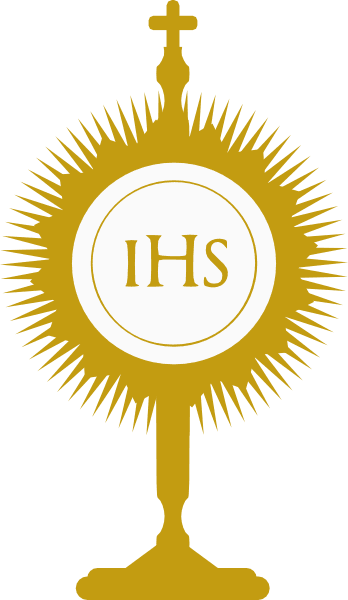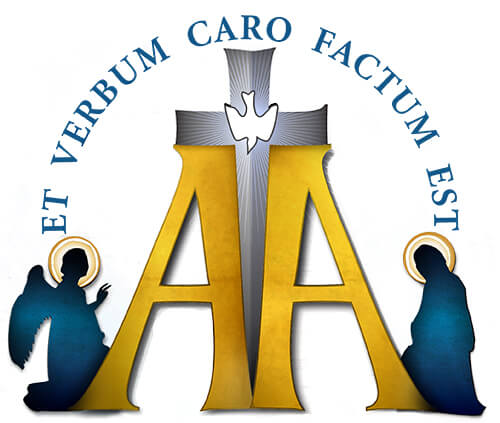Curricular Principles
Angelus Academy desires to root its curriculum firmly in the reality of God’s good creation, training the mind to seek the truth, the emotions to love the beautiful and the will to choose the good. To this end, we are continually working to shape a curriculum that stresses the existence of objective truths and a reality unconditioned by human opinion, enduring moral values that transcend historical change and cultural relativism and lasting standards of excellence that can validly claim to shape personal taste. In every case, we seek to encourage the development of these enduring values in our young students by showing them how they have been embodied in great minds, great works and especially, in great lives throughout our entire curriculum.
1. Training the mind to seek the truth.
In a culture where the existence of objective truth is no longer valued or even acknowledged, where opinion is too often substituted for fact, and the individual is taught to believe that he can create his own system of meaning and value, the ability to face reality squarely, see what actually is and then act accordingly finds little support. In response to these disturbing affairs Angelus Academy affirms that a mind filled with the light of truth can see clearly and therefore respond appropriately to whatever the circumstances require. Therefore, in every area of study—and not simply in the natural sciences—students will be encouraged to observe the matter under investigation with self-discipline, patience, care and objectivity. They will learn to respect the stubborn reality of facts in science, mathematics and history, the perennial strengths and weaknesses of human nature reflected in literary classics, as well as the supernatural truths of divine revelation. This respect for reality requires developing capacities, namely:
- a thorough grounding in decoding and computational skills
- the ability to think clearly and logically
- the ability to express oneself clearly and cogently in both oral and written forms of communication
- the capacity to memorize, particularly in respect to essential material, whether it be the multiplication tables, the Gettysburg Address, a psalm or a sonnet
- a willingness to persist in the quest for a solution to a problem and to pursue all available avenues of information when researching a topic
- a willingness to reserve judgment until all the facts are known
2. Training the emotions to love the beautiful.
The claim that beauty is a purely subjective reality has resulted in the collapse of cultural norms and a resistance to rewarding excellence. Yet time continues to be the great validator of worth, and Angelus Academy recognizes this in its insistence on using curricular materials, especially in literature, drama, music and the visual arts that have either proven themselves worthy of inspiring successive generations to aspire to goodness and even greatness or, in the case of more recent material, show real promise of doing so for future generations. In the interest of instilling a true taste for excellence and love of beauty, the following capacities and experiences will be encouraged:
- an unwillingness to be satisfied with shoddy or second rate work
- an awareness of the signficance of technique and a desire to acquire it
- a critical eye for detail and truthful representation
- a reliance on primary sources and documentation wherever it is developmentally appropriate
- an exposure to the finest works of art created by the human spirit
- an ability to distinguish between substance and sentiment
- an instinct for emotional responses that are appropriate to the circumstance
3. Training the will to choose the good.
As the mind is gradually formed to know the true and love the beautiful, it becomes easier to recognize and choose the good. At Angelus Academy, the centrality of faith formation supports and informs every aspect of the curriculum, making it possible for students to discern real value in every aspect of life. In the interest of strengthening the will to choose as it ought, every area of the curriculum will provide opportunities to:
- make real choices and live with the consequences of those choices
- recognize that some choices are better than others
- develop an awareness of the ways in which poor choices can have pervasive, long-lasting and even devastating effects
- discover that saying yes to the best may mean having to say no to things that are good in themselves
- learn to respect the free will of others in relation to legitimate choices
4. The Principle of Particularity or “Embodiment”:
Because we believe that virtues and values are most appealing and best understood in particular instances rather than in the abstract, especially when we are dealing with the young, wherever possible and whenever appropriate the curriculum will focus around the lives and witness of exemplary people as a method designed to elicit the maximum amount of personal involvement and commitment in our students. This will be the case not only in teaching the Faith but also in relation to the teaching of other academic subjects; for it is through formative relationships with the good, the great and the holy in every endeavor of life—in literature, in history, in the arts and sciences, in athletics and in prayer—that character is formed. While we share with other traditionally-grounded educational institutions a devotion to the true, the good and the beautiful, our commitment to putting a “human face” on these enduring values is what sets Angelus Academy apart and defines our singular educational charism.
We become what we love; we teach what we are.
Angelus Academy at a Glance
An independent Catholic school focused on intellectual and spiritual formation that offers a liberal arts education in the classical tradition

20 students maximum per class

Students' test scores above average nationally

Mass, Confession, and Sacrament Preparation

Latin instruction beginning in third grade

After-school activities and clubs
CONTACT US
7644 Dynatech Court
Springfield, VA 22153
(703) 924-3996
admissions@angelusacademy.org

